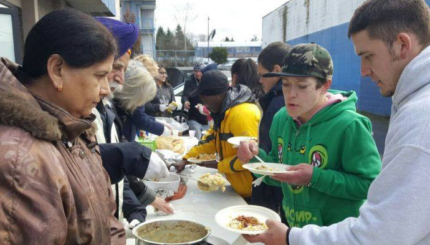So many dead in racial violence in one short, chaotic week. Dear Lord. Dear Lord.
Whose heart isn’t breaking?
Some people know exactly how to respond – but I don’t. As a religious and spiritual person, I’m moved to pray. But is prayer an effective response to crisis? Of course it depends what kind of prayer we have in mind.
Praying a traditional synagogue liturgy of peace with special passion? Yes, it can bring a community together.
Wordsmithing new liturgical poems? Yes, literature educates a listener’s mind and heart.
Sharing with the on-line community an open letter to God outlining your vision for the distribution of power in a just world? Yes, it helps readers learn, imagine, and hope.
“Praying with your feet” by marching in support of a cause? Yes, that is powerful public communication and symbolic political action.
What about a raw cry of pain from a broken heart? The kind tossed scattershot at a Higher Power – without even a clear sense of where it’s aimed? Or where it might lead?
Yes, says the Piacetzner Rebbe, writing in the Warsaw Ghetto (1940). Yes — a simple broken heart makes a difference. We learn this from the famous vision of the politically active biblical Prophet Isaiah (6:1-13).
Isaiah, who believes himself unworthy to serve as a prophet, is transported up to a heavenly throne room filled with sound. The angels call out to one another, “Holy, Holy Holy is the Lord of Hosts; the whole world is filled with God’s glory.” The doorposts shake from the reverberations of a caller. Isaiah hears the voice of God ask, “Whom shall I send?” And of course Isaiah responds, “Send me!”
Which sound shakes the doorposts and moves Isaiah to accept the mission? The sound of human suffering.
What leads the angels to say “the whole world is filled with God’s glory?” Human responses to suffering.
What is Isaiah’s inner process in this moment? He hears of the suffering of others, and his heart breaks. He has no plan, other than to say, “Put me to work, God!” But he says it, and then guidance comes.
That, says the Piacetzner, is exactly how the cry of the broken heart works. The blood freezes in our veins, he says. Meaning: we cannot act. Our old map of reality can no longer guide us. Our thought and our feeling must change. To use traditional language, we are led to repent.
Yes, the raw prayer of a broken heart can be effective. Tossing a cry to a Higher Power hangs on threads of hope. Hope that the universe has a good plan, that it can be known, that we can learn our role in it. And sometimes the prayer starts us on that path of learning.
So please: sing liturgy, write poetry, distribute impassioned ethical tracts, take nonviolent political action.
But if you are like me, and you don’t know how to act, you don’t have to do nothing. Linger with your breaking heart. Call to whatever Higher Power you feel is present. It’s a first spiritual step forwards.


